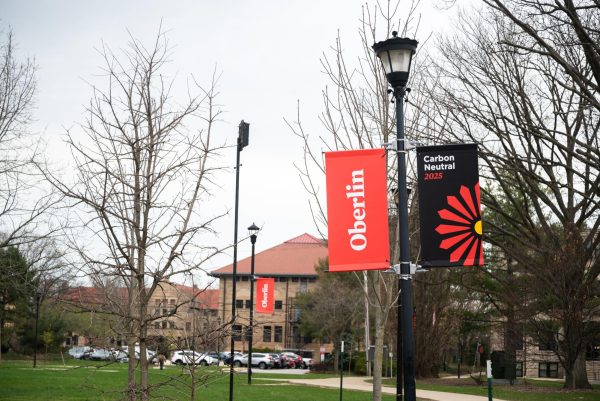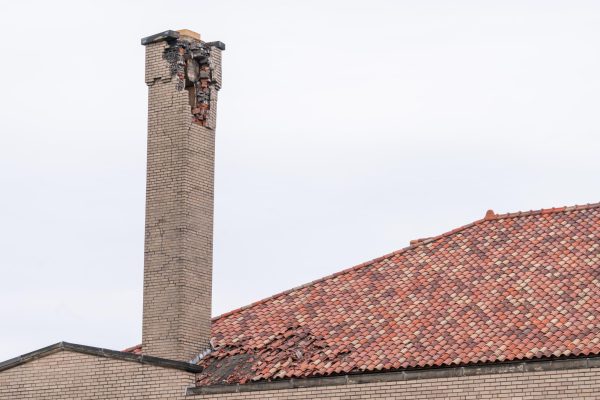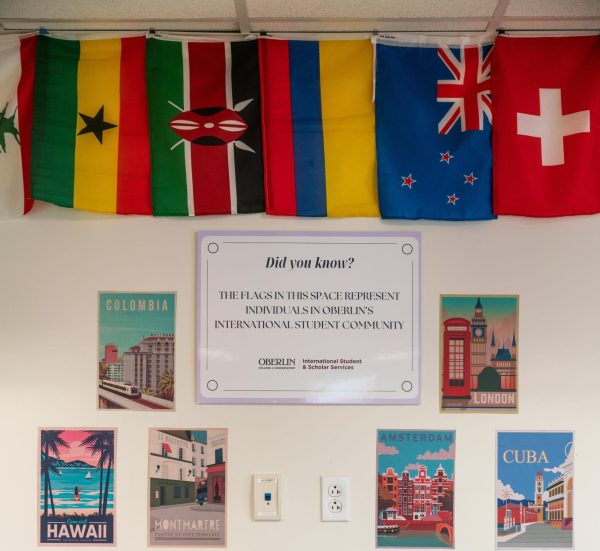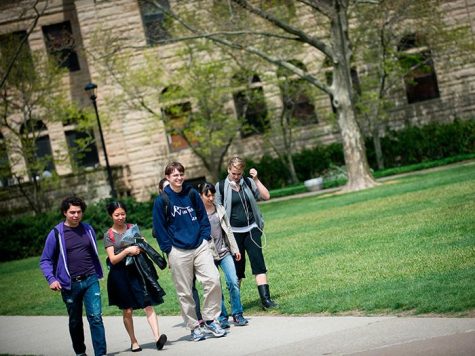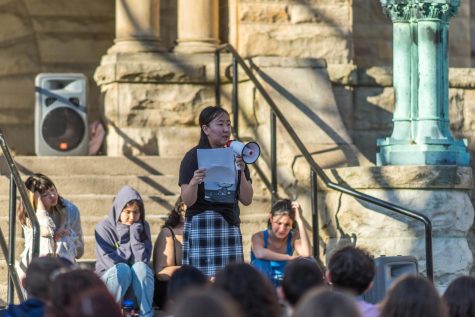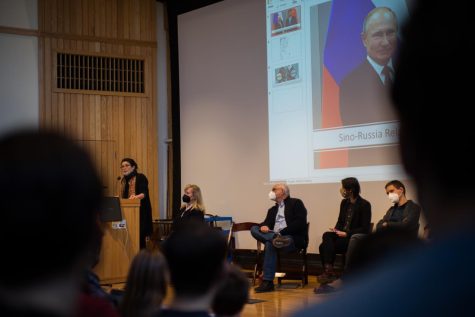Board of Trustees Approves External Financial Review
The Board of Trustees unanimously voted to proceed with the Academic and Administrative Program Review during the March 9 board meeting, instructing President Carmen Ambar to put together a 30-person Steering Committee that will oversee the review, which will be led by educational consulting firm Stevens Strategy.
This Steering Committee will be made up of 15 faculty members and 15 board members, students, administrative and professional staff, and union members, and it will be chaired by Ambar.
“[The Board of Trustees indicated] that I should convene a cross-functional team that includes representation from important faculty committees and faculty leaders as well as other stakeholders,” Ambar wrote in an email sent to all faculty and professional staff.
General Faculty met to discuss the proposal and two motions that were proposed in advance of their Wednesday meeting. One proposal, which asked that the final results of the AAPR go to the General Faculty for approval before reaching the board, was approved 104 to 44.
The second motion proposed that eight of the 15 positions designated for faculty on the AAPRSC be elected by General Faculty, and the remaining seven be appointed by the General Faculty Council. This motion failed 74 to 63.
Ambar and other administrators are hoping to bring in a representative from Stevens Strategy to meet with General Faculty in an attempt to alleviate concerns about the firm’s qualifications.
After the March 9 board meeting, Ambar addressed concerns students, staff, and faculty brought up regarding the financial review, particularly faculty worries that a consulting company is not qualified to evaluate an academic department.
“We all have program reviews, every single academic program at Oberlin undergoes a program review where outside academics — leaders in their field — come in and evaluate the program,” said Chris Howell, James Monroe professor of Politics. “Those are the people who can evaluate your program, not a consulting company.”
Ambar responded by saying this process is about reviewing the College more generally than just in its academics.
“This process is broader than that,” Ambar said. “Certainly you need to think about some quality metrics, but you’re also trying to think about mission centeredness. You’re also trying to think about potential student interest, which is not something that happens in that type of process, and you’re also trying to think about the financial piece. All those pieces have to come together, so when a group comes to review an academic department from the outside in the pure academic ways, they’re not thinking about the sort of financial framing of it in the context of the entire institution.”
Chair of the Board of Trustees Chris Canavan, OC ’84, echoed Ambar’s reasoning, touching upon the importance of contextualizing the review as an aide in helping the College manage its finances in the future.
“I think we need to put in context the role of the consultant and not inflate it into something it’s not,” Canavan said. “… This is a process that’s going to be directed by Carmen. It’s going to be overseen by a steering committee. The consultant is a resource, a service doing a lot of the heavy lifting, some of the advising at different parts, but not really determining the agenda. Otherwise we haven’t succeeded.”
Ambar said that although she will captain the review process, she stressed that she wants input from across the campus.
“Part of this process is to test new ideas, but the idea isn’t to test Carmen Ambar’s ideas,” she said. “The ideas have to bubble up from the campus, and I’m hoping that they will bubble up from the entire campus.”
The president added that she is prioritizing surveying and other forms of campus communication to broadly collect ideas across the campus. She said that these would include alumni, current, and prospective student surveys, as well as open meetings for campus community members.
In regard to students, particularly first-years, who have expressed wariness that investing in Oberlin’s distant future might compromise current resources available to students, Ambar said that upcoming changes also aim to strengthen immediate student benefits.
“I don’t think we have to lose sight of the fact that we can still invest in the key areas that are important to students,” Ambar said. “And it doesn’t mean that we’ll be able to do it perfectly. But part of this process is about freed-up resources so that we can do the things that have the most impact on moving the institution forward.”
Ambar expressed that although the process of financial review will be a challenging one, it is one that she is looking forward to. She hopes to, as she put it, “throw the constraints off” and lead the way for all of higher education.
“What Oberlin is dealing with is not an Oberlin-specific challenge. It’s just what’s happening in higher education. And the question is who is going to be the most innovative institution to solve this conundrum of what higher education is going to look like 50 or 60 years from now. Somebody is going to do that, so let it be us. Right? Let it be us.”


